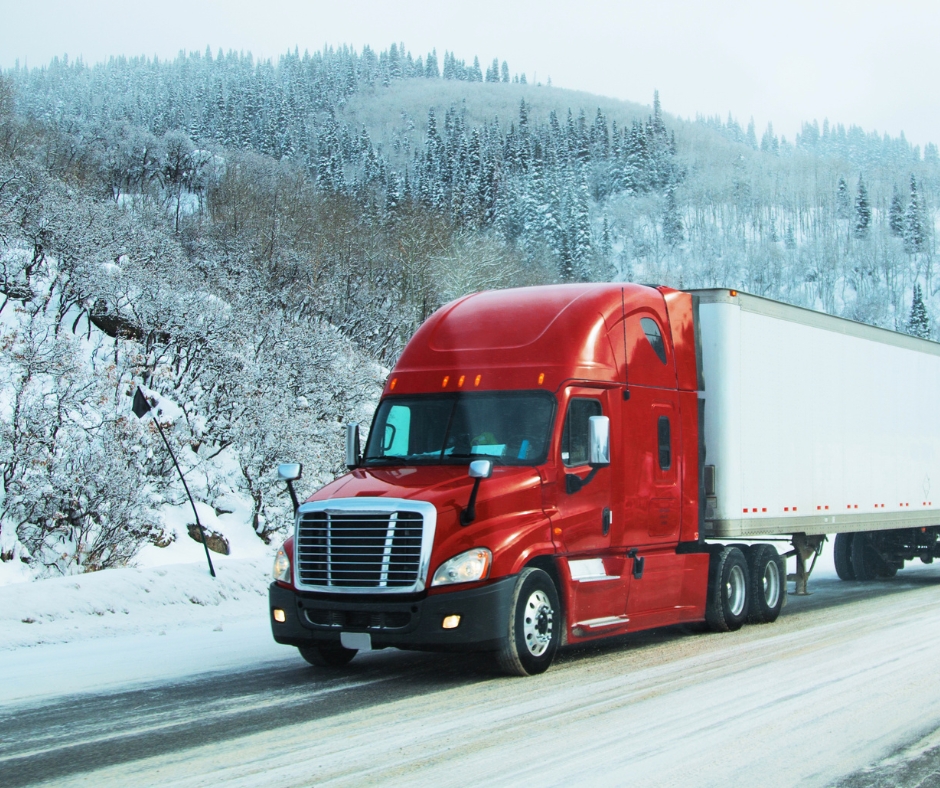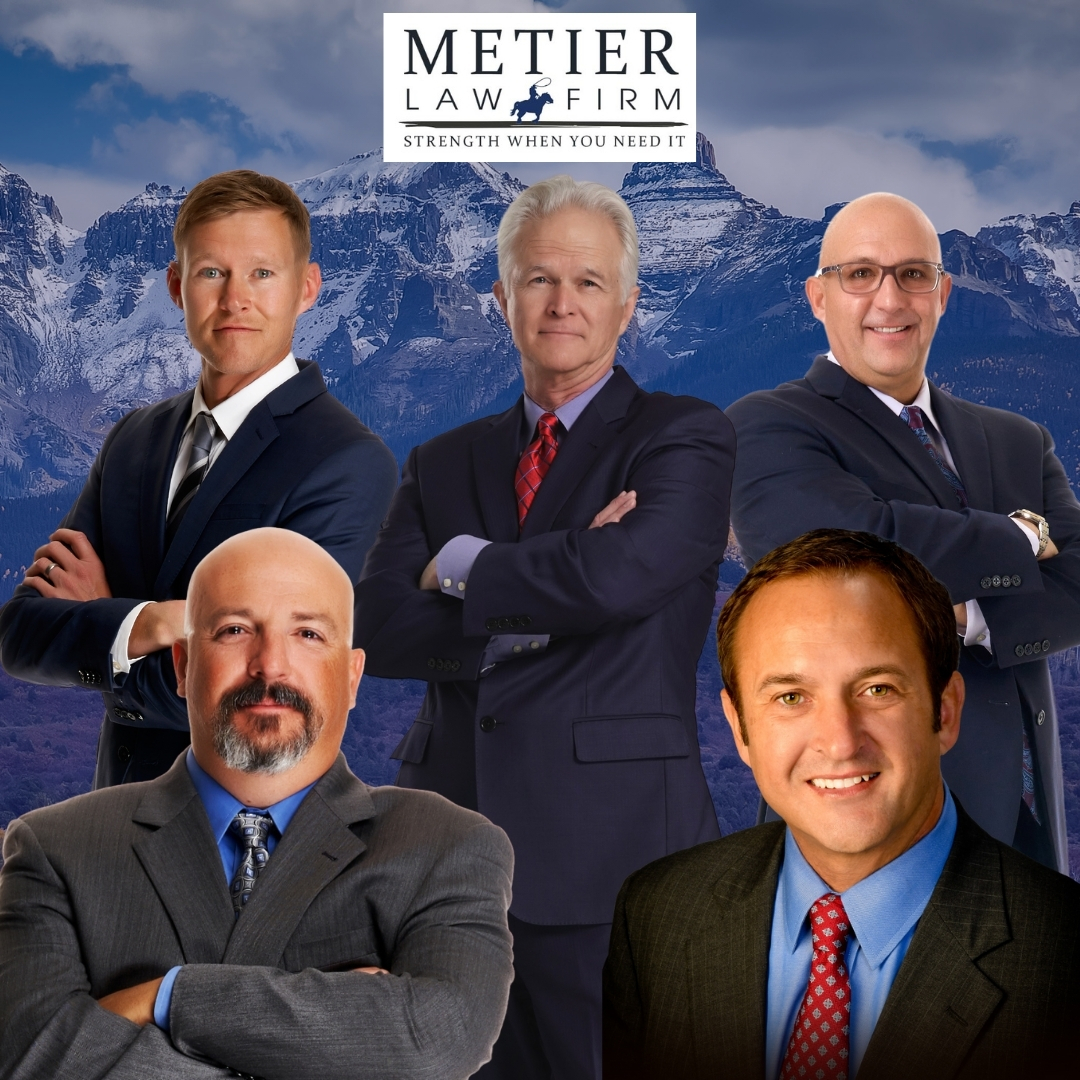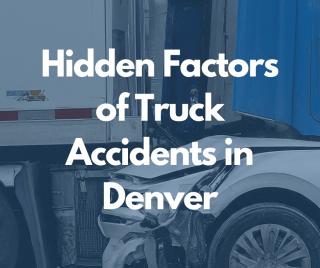When a truck collision occurs on Denver's busy streets and highways, the consequences can be catastrophic, often leaving families grappling with life-altering injuries and overwhelming financial burdens. The
car and truck accident attorneys at
Metier Law Firm understand that while a typical car crash might result in repairable vehicle damage and minor injuries, truck accidents frequently lead to devastating outcomes due to the sheer size and force involved. An 80,000-pound commercial truck colliding with a 4,000-pound passenger vehicle creates impacts that can permanently change lives in an instant.
As
experienced truck accident lawyers at Metier Law Firm, we've witnessed

countless families struggling to rebuild their lives after these traumatic events. The complexity of truck accidents extends far beyond the immediate impact – from dealing with aggressive insurance companies to navigating
complex federal trucking regulations, victims often find themselves overwhelmed by the legal challenges that follow. Our personal injury attorneys have seen how a single truck crash can trigger a cascade of consequences: mounting medical bills, lost wages, long-term disability, and profound emotional trauma that affects entire families.
What many Denver drivers don't realize is that commercial truck accidents involve unique dangers and legal challenges that
set them apart from ordinary car accidents. The combination of Denver's challenging terrain, unpredictable weather patterns, and busy urban streets creates a perfect storm of risk factors that demand a set of skills that only the best truck accident attorneys possess when handling these types of accidents.
The car and truck accident attorneys of Metier Law Firm have put together this comprehensive guide to the hidden factors of truck accidents in Denver for you to use to better understand how to share the roads with these large semi-trucks and other large commercial trucks.
The Hidden Dangers of Winter Driving Conditions
Denver's notorious winter weather transforms familiar roads into treacherous terrain for large commercial trucks. When temperatures plummet below freezing and precipitation blankets the highways, the risk of a catastrophic truck accident skyrockets. Our truck accident attorneys have handled numerous cases where winter driving conditions played a crucial role in causing devastating collisions.
The physics of winter truck crashes are particularly alarming. While a car

accident on icy roads is dangerous enough, a truck collision in these conditions can be catastrophic. Consider this: a fully loaded commercial truck can weigh up to 80,000 pounds and requires three to four times the stopping distance of a passenger vehicle in ideal conditions. Add ice or snow to the equation, and that stopping distance can increase by up to ten times. The best truck crash lawyers will have a high level of understanding how various weather conditions can affect 18-wheelers and other big rigs on the roads.
During harsh winter driving conditions, our personal injury lawyers see recurring patterns of danger that every driver should understand:
- Treacherous Road Surface Conditions
- Black ice, packed snow, and freezing rain create nearly impossible driving conditions for heavy trucks. These conditions can cause:
- Complete loss of traction on seemingly clear roads
- Unexpected sliding during routine lane changes
- Catastrophic jackknifing incidents when brakes lock
- Multiple-vehicle pile ups when trucks lose control
Visibility Challenges
Denver's winter weather often combines snow, fog, and rapidly changing conditions that create:
- Near-zero visibility situations in sudden snow squalls
- Dangerous glare from sun reflection off snow
- Reduced depth perception in whiteout conditions
- Difficulty spotting smaller vehicles in poor weather
Equipment Limitations
Cold weather poses unique challenges to truck equipment:
- Brake systems can freeze or perform unpredictably
- Tire traction decreases dramatically below certain temperatures
- Diesel fuel can gel in extreme cold, affecting engine performance
- Windshield wipers and defrosters struggle with heavy snow and ice
Driver Fatigue Factors
Winter conditions amplify driver fatigue issues:
- Increased stress from constant weather vigilance
- Physical exhaustion from fighting poor road conditions
- Reduced reaction times in low-visibility situations
- Added pressure to meet delivery deadlines despite weather
As top rated truck crash lawyers, we've seen how these winter driving hazards can combine to create perfect storms for serious accidents. When a truck loses control on an icy highway or fails to stop in time on a snow-covered road, the resulting personal injury claims often involve catastrophic injuries or fatalities. The NBTA board certified truck accident attorneys at Metier Law Firm understand how to investigate these complex winter weather accidents and prove when dangerous conditions contributed to a crash.
The Challenge of Denver's Unique Landscape
Denver's distinctive topography creates a complex driving environment unlike

any other major city in America. Situated at exactly 5,280 feet above sea level and nestled against the Rocky Mountains, the Mile High City presents commercial truck drivers with a unique set of geographical challenges that significantly increase accident risks.
Mountain Passes and Steep Grades
The steep grades leading into and out of Denver are particularly treacherous for commercial trucks. Key mountain corridors like I-70 feature sustained grades of 6-7% coming down the mountains, which can put immense strain on truck systems:
- Brake systems often overheat on long downhill stretches, particularly on routes like the I-70 descent from the Eisenhower Tunnel into Denver. Even experienced drivers can face brake fade or complete failure during these extended descents.
- Engine braking becomes less effective at higher altitudes due to the thinner air, forcing greater reliance on mechanical brakes
- Cargo shifts become more dangerous on steep inclines, potentially destabilizing the entire vehicle
The rapid altitude changes around Denver create additional challenges:
- Air pressure changes can affect tire performance and brake system efficiency
- Engine power decreases significantly at higher elevations, affecting a truck's ability to maintain safe speeds on upgrades
- The thinner air reduces aerodynamic brake effectiveness, a critical safety feature for modern commercial trucks
Weather and Elevation Interplay
Denver's unique landscape creates distinct weather patterns that compound driving risks:
- Sudden weather changes are common as storms move over the mountains
- Temperature variations between elevations can create unexpected icy conditions
- Strong crosswinds are particularly dangerous along elevated sections and mountain passes
- Cloud cover and fog are more frequent at higher elevations, reducing visibility
Year-Round Challenges
Unlike seasonal concerns, Denver's topographical challenges persist throughout the year:
- Summer heat combined with high elevation puts additional strain on cooling systems
- Spring runoff can create unexpected road hazards in mountain areas
- Fall temperature fluctuations can create unpredictable road conditions
- Limited alternative routes when major passes become hazardous
These unique landscape features require truck drivers to maintain constant vigilance and exercise exceptional skill. When accidents occur, understanding these geographical factors becomes crucial in determining liability and building a strong legal case.
Urban Challenges: More Than Just Tight Spaces
Denver's rapid urban growth has transformed it into a complex metropolitan

maze that poses unique challenges for commercial trucks. While all cities present difficulties for large vehicles, Denver's combination of historical infrastructure, modern development, and diverse transportation modes creates particularly hazardous conditions.
Historical Infrastructure Meets Modern Traffic
Denver's older neighborhoods, with their narrow streets and tight corners, were never designed for today's massive commercial vehicles:
- Historic areas like LoDo and Five Points feature streets barely wide enough for two-way truck traffic
- Aging bridge infrastructure often has lower clearance heights than modern standards
- Traditional grid patterns create blind intersections where large trucks struggle to maintain safe sight lines
- Legacy loading zones and delivery areas haven't kept pace with modern truck dimensions
Complex Highway Systems
Denver's highway network presents unique challenges that frequently contribute to accidents:
- The "Mousetrap" interchange where I-25 and I-70 meet creates multiple merge points and lane changes
- The I-70 viaduct through central Denver requires trucks to navigate elevated sections with limited visibility
- Multiple highway splits and merges around the city create decision points that can confuse unfamiliar drivers
- Express lanes and variable toll systems add another layer of complexity for truck operators
Multi-Modal Transportation Conflicts
As Denver embraces diverse transportation options, commercial trucks must navigate an increasingly complex urban environment:
- Dedicated bike lanes and protected cycling infrastructure create new blind spots
- Light rail crossings and bus-only lanes require additional vigilance
- Pedestrian-heavy areas around Union Station and 16th Street Mall demand constant attention
- Shared streets and pedestrian zones create unpredictable mixing of different traffic types
Construction and Development Impact
Denver's ongoing development boom adds temporary but significant challenges:
- Frequent lane closures and detours force trucks onto unsuitable streets
- Construction vehicles and equipment create additional obstacles
- Temporary traffic pattern changes can catch even experienced drivers off guard
- Limited staging areas for deliveries near construction sites force dangerous parking situations
Time-Sensitive Delivery Pressures
Urban delivery schedules create additional stress points:
- Strict delivery windows in downtown areas during off-peak hours
- Limited loading zone availability during peak business hours
- Pressure to complete multiple urban deliveries within tight timeframes
- Restricted access times in residential areas
Weather Amplifies Urban Risks
Denver's weather patterns intensify urban navigation challenges:
- Snow removal creates narrower lanes and reduced turning radius
- Ice formation at intersections makes precise maneuvering more difficult
- Sun glare during morning and evening rush hours reduces visibility
- Sudden weather changes require rapid adaptation in confined spaces
Technological Navigation Challenges
Modern routing technology sometimes creates additional problems:
- GPS systems may not account for truck-specific restrictions
- Navigation apps often don't consider commercial vehicle limitations
- Real-time traffic updates may direct trucks through unsuitable neighborhoods
- Electronic logging devices add pressure to complete urban deliveries within strict time limits
These urban challenges require truck drivers to maintain extraordinary

awareness and exercise precise control in constantly changing conditions. When accidents occur, understanding these complex urban factors becomes essential in establishing liability and securing appropriate compensation for victims.
Understanding these specific urban challenges helps explain why truck accidents in Denver often involve unique circumstances that require specialized legal expertise to address properly.
The Impact of Traffic Congestion
Heavy traffic in Denver's metropolitan area significantly increases the risk of truck accidents. The combination of growing population density, limited highway infrastructure, and increasing commercial traffic creates challenging conditions that directly impact truck safety and driver performance.
High-Risk Congestion Zones
Denver's most severely congested areas present particular challenges for commercial trucks:
- The I-70/I-25 interchange ("Mousetrap") creates complex merging situations for large vehicles
- The Central I-25 corridor, particularly during rush hours, forces trucks to navigate frequent speed changes
- Santa Fe Drive and Broadway corridor's stop-and-go conditions create challenging braking situations for heavy vehicles
- Colorado Boulevard's limited alternative routes often trap commercial vehicles in congestion
- The US-36 corridor between Denver and Boulder experiences heavy commercial and commuter traffic mixing
Congested conditions significantly affect commercial vehicle operation:
- Air brake systems require significantly longer stopping distances in stop-and-go traffic due to heat buildup
- Diesel engines face increased strain from constant speed changes in heavy traffic
- Transmission systems experience heightened wear during frequent stops and starts
- Tire stress increases during low-speed maneuvering, particularly in warm weather conditions
Common patterns emerge in congested conditions:
- Rear-end collisions become more frequent due to sudden traffic changes
- Multi-vehicle accidents often happen because big trucks have limited ability to move in heavy traffic.
- Side-swipe incidents increase where lanes narrow or merge in heavy traffic
- Jack-knife risks rise significantly in stop-and-go conditions
Extended exposure to heavy traffic conditions affects driver capabilities:
- Increased stress levels from prolonged exposure to congested conditions
- Decreased decision-making ability during extended periods of stop-and-go driving
- Slower reaction times during long stretches of congested driving
- Higher likelihood of risk-taking behavior when falling behind schedule
This understanding of traffic congestion's impact helps establish the complex factors that contribute to truck accidents in Denver's congested areas and highlights the importance of proper safety protocols and legal representation when accidents occur.
Why You Need the Best Truck Crash Attorney
When you're involved in a truck accident, the complexity of these cases

demands specialized legal expertise. Commercial truck accidents involve intricate layers of state and federal regulations, multiple insurance policies, and complex corporate relationships that make them fundamentally different from standard auto accidents, and the best truck accident lawyers will be able help you navigate this often confusing legal landscape.
Complex Liability Determinations
Truck accident cases rarely have simple liability scenarios:
- Multiple parties often share responsibility for the accident
- Different state laws may apply when trucks cross state lines
- Federal regulations create additional compliance requirements
- Liability can extend beyond the immediate driver to multiple corporate entities
- Complex mechanical and maintenance issues may require expert investigation
Chain of Responsibility Investigation
A thorough truck accident investigation must examine numerous parties:
- The truck driver and their driving history
- The trucking company's hiring and training practices
- Vehicle maintenance providers and their service records
- Cargo loading companies and their procedures
- Parts manufacturers if mechanical failure contributed
- Government entities responsible for road conditions
- Third-party contractors involved in fleet management
Documentation and Evidence Requirements
Truck accidents require extensive documentation gathering:
- Driver logs and electronic tracking data
- Vehicle maintenance and inspection records
- Company safety policies and training materials
- Drug and alcohol testing results
- Communication records between driver and company
- Black box data and electronic control module information
- Surveillance footage from nearby businesses
- Witness statements and first responder reports
Specialized Insurance Considerations
Commercial truck insurance adds complexity to claims:
- Multiple insurance policies often apply to a single accident
- Different coverage limits for various types of damages
- Complex policy exclusions and coverage triggers
- Interstate commerce considerations affecting coverage
- Layered insurance structures with multiple carriers
- MCS-90 endorsements and federal insurance requirements
Federal Trucking Regulations
Understanding federal regulations is crucial:

- Hours of Service (HOS) requirements and violations
- Driver qualifications and licensing standards
- Vehicle maintenance and inspection requirements
- Cargo loading and securing regulations
- Safety management system compliance
- Drug and alcohol testing protocols
- Electronic logging device requirements
Expert Witness Coordination
Successful cases often require testimony from:
- Accident reconstruction specialists
- Transportation safety experts
- Medical professionals
- Economic loss analysts
- Life care planning specialists
- Mechanical engineers
- Industry standard experts
Time-Sensitive Investigation Requirements
Quick action is essential in truck accident cases:
- Evidence must be preserved before it disappears
- Electronic data needs to be downloaded and secured
- Witness statements should be gathered promptly
- Physical evidence at the scene must be documented
- Company records need to be requested before changes occur
Long-Term Impact Assessment
Comprehensive case evaluation must consider:
- Future medical needs and ongoing care requirements
- Lost earning capacity and career impact
- Long-term disability considerations
- Quality of life changes
- Family impact and loss of consortium claims
- Psychological trauma and emotional distress
Settlement Negotiation Expertise
Effective representation requires:
- Understanding true case value based on all factors
- Knowledge of insurance company tactics
- Experience with structured settlements
- Ability to project long-term costs accurately
- Skills in multi-party negotiations
- Trial preparation capability to strengthen negotiating position
By choosing an board certified truck accident attorney, you ensure that every aspect of your case receives the attention and expertise it deserves. Our team at Metier Law Firm has the depth of knowledge and resources necessary to handle these complex cases successfully, maximizing your chance of receiving fair compensation for your injuries and losses.
Protecting Your Rights After a Truck Accident
Taking the right steps immediately after a truck accident is crucial for your health and legal rights. Here's what you need to do:
- Seek immediate medical attention
- Seek emergency care regardless of injury severity
- Document all injuries and follow treatment plans
- Keep detailed records of medical expenses and appointments
- Maintain a daily log of symptoms and limitations
Document Everything
- Photograph all vehicle damage and the accident scene
- Capture road conditions and weather
- Keep all repair estimates and receipts
- Record visible injuries as they heal
- Collect witness names and contact details
- Note locations of security cameras
- Get investigating officers' information
- Document names of emergency responders
- Identify nearby businesses that may have footage
Protect Your Interests
- Don't give recorded statements to insurance companies without your lawyer present
- Avoid signing documents without legal review
- Stay off social media regarding the accident
- Keep copies of all accident-related communication
- Direct all inquiries to your attorney
- Choose a lawyer experienced in truck accidents
- Bring all documentation to your consultation
- Share accident details while memory is fresh
- Review deadlines and legal requirements
- Discuss your medical status and ongoing needs
Remember: While you focus on recovery, the trucking company will have investigators and lawyers working immediately. Having proper legal representation levels the playing field and protects your interests.
Get the Legal Support You Deserve
When you're dealing with the aftermath of a truck accident, having the right

legal team makes all the difference. At Metier Law Firm, we offer:
- Comprehensive Case Management
- Dedicated legal teams assigned to your case
- Direct access to your attorney throughout the process
- Regular case updates and progress reports
- Coordinated medical and legal documentation
- Expert witness selection and management
Financial Protection
- No upfront legal fees
- Contingency-based representation
- Assistance with medical liens
- Strategic settlement negotiations
- Trial preparation when necessary
Support Services
- Help coordinating medical care
- Assistance with insurance claims
- Transportation assistance if needed
- Connection to support resources
- Help with property damage claims
- Guidance through the entire legal process
Take Action Now
Time is critical in truck accident cases. Evidence can disappear, witnesses' memories fade, and important legal deadlines approach quickly. Here's what happens when you contact us:
- Immediate Response
- 24/7 availability for new cases
- Same-day consultation scheduling
- Emergency legal team deployment when needed
- Rapid evidence preservation measures
- Immediate investigation initiation
Free Case Evaluation
- In-depth review of your situation
- Clear explanation of your legal options
- Honest assessment of your case value
- Discussion of potential timeline
- Explanation of our legal strategy
- No obligation to proceed
- Multiple office locations for your convenience
- Home and hospital visits available
- Video conferencing options
- Multilingual staff
Next Steps
- Call us at 866-377-3800 for immediate assistance
- Visit www.metierlaw.com to learn more about our firm
- Schedule your free consultation at your convenience
- Meet with our legal team to discuss your case
- Let us begin protecting your rights immediately
Family Supporting Family
At Metier Law Firm, we understand that a truck accident affects the entire family. Our approach reflects this understanding:
Personal attention to your family's specific needs
Consideration of long-term family impact
Clear communication with all involved parties
Compassionate guidance through difficult decisions
Commitment to your family's future security
Don't wait!
The sooner you reach out, the sooner we can:
- Preserve crucial evidence
- Protect your legal rights
- Begin building your case
- Handle insurance companies
- Fight for your compensation
- Guide you toward recovery
Don't let this challenging time overwhelm you. Our top rated truck accident attorneys are ready to shoulder the legal burden while you focus on what matters most – your recovery and your family. With decades of experience and a proven track record of success, we have the knowledge, resources, and dedication to fight for the compensation you deserve. Take the first step toward justice. Contact Metier Law Firm truck accident attorneys today - call 866-377-3800 or visit
www.metierlaw.com to schedule your free consultation.



 countless families struggling to rebuild their lives after these traumatic events. The complexity of truck accidents extends far beyond the immediate impact – from dealing with aggressive insurance companies to navigating complex federal trucking regulations, victims often find themselves overwhelmed by the legal challenges that follow. Our personal injury attorneys have seen how a single truck crash can trigger a cascade of consequences: mounting medical bills, lost wages, long-term disability, and profound emotional trauma that affects entire families.
countless families struggling to rebuild their lives after these traumatic events. The complexity of truck accidents extends far beyond the immediate impact – from dealing with aggressive insurance companies to navigating complex federal trucking regulations, victims often find themselves overwhelmed by the legal challenges that follow. Our personal injury attorneys have seen how a single truck crash can trigger a cascade of consequences: mounting medical bills, lost wages, long-term disability, and profound emotional trauma that affects entire families. accident on icy roads is dangerous enough, a truck collision in these conditions can be catastrophic. Consider this: a fully loaded commercial truck can weigh up to 80,000 pounds and requires three to four times the stopping distance of a passenger vehicle in ideal conditions. Add ice or snow to the equation, and that stopping distance can increase by up to ten times. The best truck crash lawyers will have a high level of understanding how various weather conditions can affect 18-wheelers and other big rigs on the roads.
accident on icy roads is dangerous enough, a truck collision in these conditions can be catastrophic. Consider this: a fully loaded commercial truck can weigh up to 80,000 pounds and requires three to four times the stopping distance of a passenger vehicle in ideal conditions. Add ice or snow to the equation, and that stopping distance can increase by up to ten times. The best truck crash lawyers will have a high level of understanding how various weather conditions can affect 18-wheelers and other big rigs on the roads. any other major city in America. Situated at exactly 5,280 feet above sea level and nestled against the Rocky Mountains, the Mile High City presents commercial truck drivers with a unique set of geographical challenges that significantly increase accident risks.
any other major city in America. Situated at exactly 5,280 feet above sea level and nestled against the Rocky Mountains, the Mile High City presents commercial truck drivers with a unique set of geographical challenges that significantly increase accident risks.
 maze that poses unique challenges for commercial trucks. While all cities present difficulties for large vehicles, Denver's combination of historical infrastructure, modern development, and diverse transportation modes creates particularly hazardous conditions.
maze that poses unique challenges for commercial trucks. While all cities present difficulties for large vehicles, Denver's combination of historical infrastructure, modern development, and diverse transportation modes creates particularly hazardous conditions.
 awareness and exercise precise control in constantly changing conditions. When accidents occur, understanding these complex urban factors becomes essential in establishing liability and securing appropriate compensation for victims.
awareness and exercise precise control in constantly changing conditions. When accidents occur, understanding these complex urban factors becomes essential in establishing liability and securing appropriate compensation for victims. demands specialized legal expertise. Commercial truck accidents involve intricate layers of state and federal regulations, multiple insurance policies, and complex corporate relationships that make them fundamentally different from standard auto accidents, and the best truck accident lawyers will be able help you navigate this often confusing legal landscape.
demands specialized legal expertise. Commercial truck accidents involve intricate layers of state and federal regulations, multiple insurance policies, and complex corporate relationships that make them fundamentally different from standard auto accidents, and the best truck accident lawyers will be able help you navigate this often confusing legal landscape.

 legal team makes all the difference. At Metier Law Firm, we offer:
legal team makes all the difference. At Metier Law Firm, we offer:

